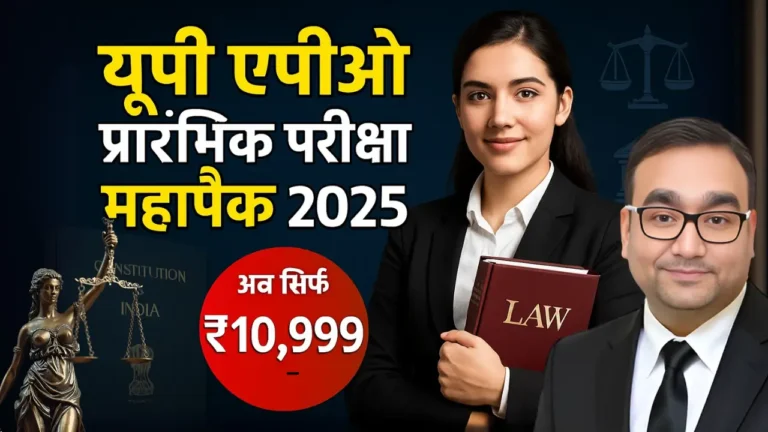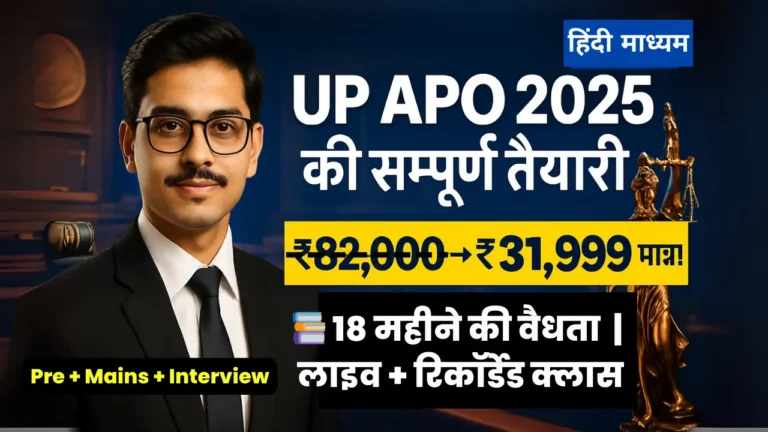Madras High Court rules crypto is legal property in India under Indian law. Learn what this means for investors, exchanges, and the future of digital assets.
🪙 A Judgment That Could Change India’s Digital Future
On a humid Saturday morning in Chennai, a 54-page judgment quietly reshaped the legal future of cryptocurrency in India. The Madras High Court, led by Justice N. Anand Venkatesh, declared that cryptocurrency is property — intangible, yes, but capable of being owned, enjoyed, and held in trust.
The decision came in Rhutikumari v. Zanmai Labs Pvt. Ltd. and Ors (2025 Madras High Court), a case that began not with a multi-crore scam, but with a modest investor who simply wanted her coins back.
What unfolded was a turning point — one that gave legal meaning to digital assets and, perhaps for the first time, real protection to ordinary crypto investors in India.
Table of Contents
⚖️ 1. The Story Behind the Case
The petitioner, Rhutikumari, was not a big-time trader. She invested ₹1.98 lakh on WazirX, India’s largest crypto exchange operated by Zanmai Labs Pvt. Ltd., to purchase 3,532.30 XRP tokens in January 2024.
Six months later, tragedy struck. On July 18, 2024, WazirX announced that its Ethereum-based cold wallet had been hacked — a cyberattack worth nearly USD 230 million. All user accounts were frozen, including hers.
Her XRP holdings weren’t even part of the stolen assets. Still, she couldn’t access or trade them.
She approached the Madras High Court under Section 9 of the Arbitration and Conciliation Act, 1996, seeking interim protection of her digital assets until arbitration could take place.
The exchange argued that disputes had to be resolved in Singapore, under a foreign restructuring plan approved by the Singapore High Court, and that Indian courts had no jurisdiction.
But Justice Venkatesh didn’t agree.
Read More: Criminal Conspiracy under BNS 2023 – Definition, Ingredients & Punishment
🧾 2. What the Court Actually Said
After analyzing domestic and international precedents, the Madras High Court made a clear pronouncement:
“There can be no doubt that cryptocurrency is property. It is not tangible, nor is it legal tender. However, it is a property that can be enjoyed, possessed, and held in trust.”
This single paragraph changed the landscape.
In essence, the Court drew a line between currency and property. While crypto may not yet be money, it undeniably carries value — and value, in law, attracts protection.
The Court directed Zanmai Labs to furnish a bank guarantee of ₹9.56 lakh or deposit an equivalent amount in escrow, preserving the investor’s portfolio value until arbitration concludes.
📚 3. Why This Matters Under Indian Law
Before this ruling, India’s treatment of cryptocurrency was uncertain.
Tax authorities recognized it for income-tax purposes, but courts hadn’t clearly defined its legal character.
The Madras High Court settled that question. By treating crypto as property, the Court:
- Allowed investors to claim legal ownership.
- Recognized that exchanges owe fiduciary-like duties to users.
- Opened the door for trust and contractual remedies.
In short, this decision gave the digital asset economy a legal identity it had long been missing.
Read More: Mastering State-Specific Law Questions in Judiciary Interview 2025
⚖️ 4. The Laws and Precedents Relied Upon
Justice Venkatesh didn’t act on instinct alone. His reasoning rested on two classic Supreme Court precedents defining what “property” means:
- Ahmed G.H. Ariff v. Commissioner of Wealth Tax, AIR 1971 SC 1691 – The Court said property includes “every possible interest which a person can acquire, hold, and enjoy.”
- Jilubhai Nanbhai Khachar v. State of Gujarat, AIR 1995 SC 142 – Expanded the idea to cover intangible and beneficial interests, not just physical assets.
These definitions, the Madras High Court noted, apply perfectly to digital tokens.
Crypto may live on a blockchain, but it represents exclusive control and transferable value— the very essence of property.
Read More; Wife Can Join Husband’s Defamation Suit : Supreme Court
💰 5. How the Court Interpreted “Property”
The Court acknowledged that cryptocurrencies are data, but that doesn’t make them any less real in legal terms.
They are:
- Definable – Each token can be identified through blockchain records.
- Exclusive – Ownership lies with whoever controls the private key.
- Transferable – Assets can be moved or traded.
- Valuable – They hold market worth and can be taxed.
Therefore, said the Judge, the right over such assets is a valuable interest recognized by Indian jurisprudence.
In the words of the Court:
“Crypto currency may not be a tangible property nor a legal currency, but it remains an asset capable of enjoyment and possession in a beneficial form.”
That phrasing — “capable of enjoyment and possession” — mirrors how Indian courts have historically recognized property rights over shares, patents, goodwill, and even electricity.
📘 6. Crypto and the Income-Tax Act
The judgment also referred to Section 2(47A) of the Income-tax Act, 1961, inserted by the Finance Act 2022, which defines “Virtual Digital Asset (VDA)”.
This provision acknowledges that cryptocurrencies are a distinct asset class, subject to taxation under the head of “income from transfer of VDA.”
Justice Venkatesh observed that this statutory recognition underlines the reality that crypto is neither illegal nor imaginary — the law already recognizes it as something ownable and taxable.
He added that these legislative signals strengthen the finding that crypto is legal property in India.
🌍 7. Arbitration, Jurisdiction, and the India Connection
Zanmai Labs tried to push the dispute to Singapore, arguing that all user agreements mandated arbitration there.
But the Court relied on the Supreme Court’s ruling in PASL Wind Solutions Pvt Ltd v. GE Power Conversion India Pvt Ltd (2021), which held that Indian courts can grant interim relief under Section 9 even if arbitration is seated abroad, as long as the assets or the cause of action are in India.
Justice Venkatesh reasoned that:
- The petitioner purchased crypto using funds transferred from her Indian bank account (Kotak Mahindra).
- She accessed the platform from within Chennai.
- The Indian entity (Zanmai Labs) was registered as a reporting entity under the Financial Intelligence Unit (FIU-IND).
Hence, a part of the cause of action clearly arose in India.
“The asset namely the crypto currency was held by her in India by means of the WazirX platform… therefore, the application under Section 9 is maintainable.”
That clarification quietly expands the reach of Indian law into the digital asset world.
🚫 8. Why “Socialising Losses” Doesn’t Work
The exchange argued that all users must share losses proportionally, based on a Singapore restructuring plan approved after the hack — a concept they called “socialising losses.”
Justice Venkatesh rejected this.
He noted that the investor’s XRP tokens were distinct from the Ethereum-based ERC-20 tokens affected by the hack. Applying collective losses, he said, would breach trust and fairness.
The judgment cited the Bombay High Court’s earlier observation that such clauses have no contractual basis in user agreements.
As the Madras High Court put it:
“If the asset possessed by the applicant was unaffected by the breach, its erosion through socialisation of losses cannot be justified.”
In short, exchanges can’t dilute individual ownership simply because their systems failed.
🏛️ 9. Implications for Investors and Exchanges
For Investors
- Your tokens are now recognized as property.
- You can seek court protection under Section 9 of the Arbitration Act if access is frozen or threatened.
- Distinct crypto assets can’t be pooled into losses without your consent.
- The judgment signals that crypto is legal property in India, giving investors real confidence.
For Exchanges
- They owe a duty of care and perhaps a trust-like obligation to users.
- They must segregate user holdings and ensure compliance with FIU-IND registration.
- They cannot rely solely on foreign arbitration clauses to escape Indian jurisdiction.
- Transparency and clear contractual terms will be essential going forward.
This shift means crypto platforms will now be treated more like custodians or trustees, not mere intermediaries.
🔍 10. Expert Takeaways and Legal Insights
1. A Bridge Between Law and Technology
This case shows how courts are adapting classical property principles to modern technology. By leaning on century-old case law, Justice Venkatesh built a bridge between the tangible and the digital.
2. Property Rights as a Foundation for Regulation
Recognizing crypto as property gives lawmakers a base for future regulation — covering inheritance, taxation, insolvency, and enforcement.
3. Judicial Trust in Responsible Innovation
The Madras High Court didn’t romanticize crypto. It simply recognized the reality: people buy, sell, and store it, so the law must keep up.
4. Potential Ripple Effects
Expect similar reasoning in upcoming cases on NFT ownership, tokenized securities, or DeFi disputes. Courts may now rely on this judgment to extend property rights across the digital asset ecosystem.
🧩 11. FAQs
Q1: Does this mean crypto is legal tender in India?
No. The Court was clear that crypto is not currency, but property. It can be owned and protected, but not used to pay debts or taxes like rupees.
Q2: Can Indian investors sue exchanges in Indian courts?
Yes. If assets are located in India or an Indian entity is involved, courts can step in for interim relief under Section 9.
Q3: How does this affect taxation?
Crypto transfers are already taxed under Section 2(47A) as Virtual Digital Assets. The ruling reinforces that tax treatment by acknowledging crypto as legitimate property.
Q4: What should exchanges do after this ruling?
Maintain separate ledgers for user holdings, obtain FIU-IND registration, and update user agreements to clearly define liability during hacks or freezes.
Q5: Is this decision final nationwide?
It’s binding within Tamil Nadu and persuasive elsewhere. However, given its detailed reasoning, other High Courts — and even the Supreme Court — are likely to follow it.
🧾 12. References
- Madras High Court Judgment (2025:MHC:2437) – Rhutikumari v. Zanmai Labs Pvt Ltd & Ors → Official PDF
- Ahmed G.H. Ariff v. CWT, AIR 1971 SC 1691
- Jilubhai Nanbhai Khachar v. State of Gujarat, AIR 1995 SC 142
- PASL Wind Solutions Pvt Ltd v. GE Power Conversion India Pvt Ltd (2021)
- Bombay High Court Order (2025:BHC-OS:18329) – Official PDF
- Section 2(47A), Income-tax Act, 1961 – Virtual Digital Assets
- Arbitration and Conciliation Act – Section 9 Text
- Financial Intelligence Unit (India) – Registered VDA Entities List
- FIU-IND Official Website
- Press Information Bureau Release on VDA Compliance
🧭 Final Takeaway
This case isn’t just about one investor’s frozen account. It’s about how Indian law finally caught up with digital reality. By declaring that crypto is property, the Madras High Court gave shape to something the economy had long treated as shadowy.
For ordinary investors, it means your digital assets now carry legal weight. For exchanges, it’s a reminder that custody brings responsibility.
And for the law itself, it’s proof that tradition and technology can coexist — when courts listen, adapt, and write judgments that feel both rooted and forward-looking.
Because sometimes, progress doesn’t need a new law. It just needs a clear voice saying, yes, this too counts as property.
#Doonlawmentor #cryptolaw #cryptocurrency #CryptoIsLegalPropertyInIndia
#MadrasHighCourt
#IndianLawUpdates
#DigitalAssetsLaw
#VirtualDigitalAssets
#CryptoRegulationIndia
#BlockchainLawIndia
#WazirXCase
#LegalNewsIndia
#DoonLawMentor






